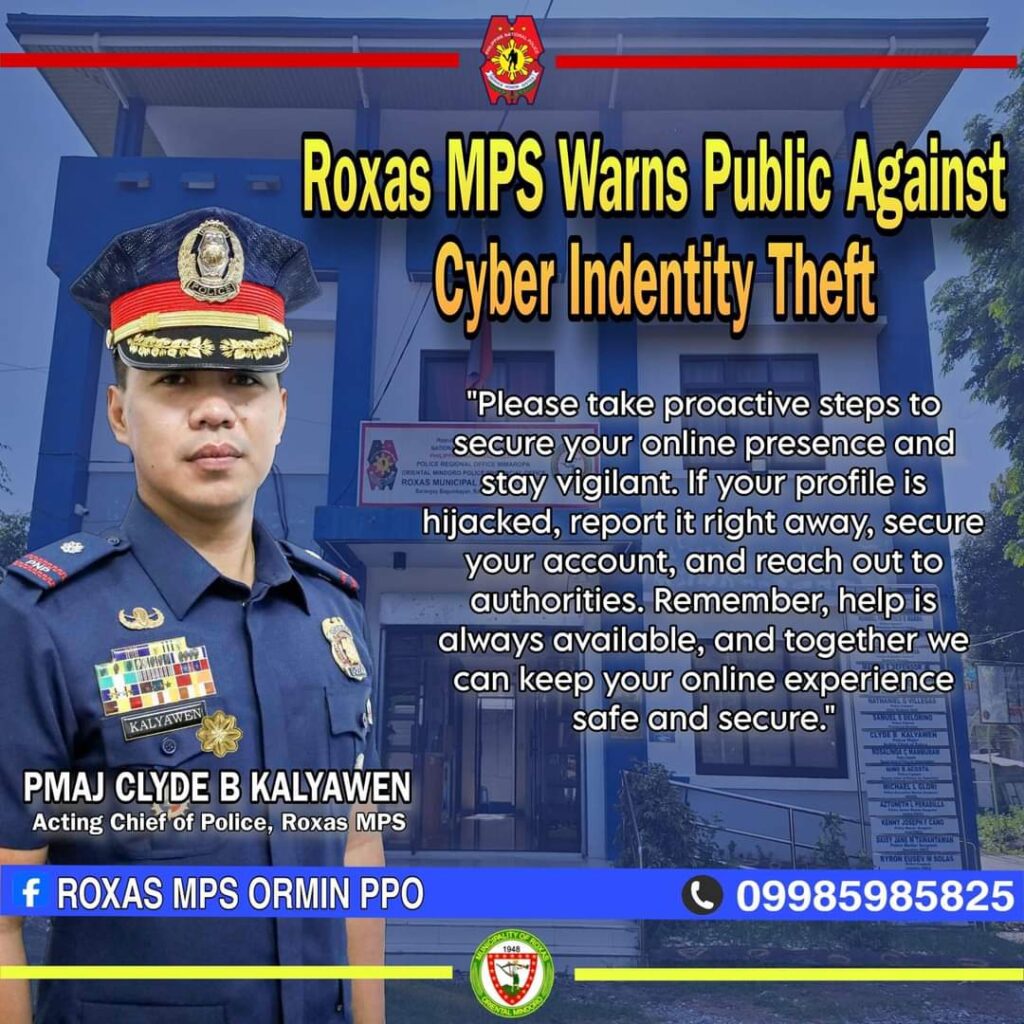Police authorities on Tuesday warned the public against a new wave of cyber scams, where hackers hijack social media accounts to swindle money from unsuspecting victims.
According to Police Major Clyde Kalyawen, acting chief of the Roxas Municipal Police Station, cybercriminals use phishing or social engineering tactics to gain access to social media accounts.
Once inside, they use the hijacked accounts to deceive family and friends into sending financial aid, Kalyawen said.
The police official also cautioned against using public Wi-Fi networks, which often lack encryption, making it easy for hackers to intercept sensitive information.
“Public Wi-Fi networks are vulnerable to hacking, and users risk exposing their personal data, including passwords and credit card numbers,” Kalyawen warned.
To prevent falling victim to these scams, Kalyawen advised social media users to strengthen their online security by using strong passwords, enabling multi-factor authentication, and avoiding suspicious links.

Under the Cybercrime Prevention Act of 2012, cyber identity theft can lead to prison terms of six to 12 years and fines starting at P200,000.
RA 10175 OR CYBERCRIME PREVENTION ACT OF 2012
The Cybercrime Prevention Act of 2012, formally known as Republic Act 10175, marks a pivotal development in the Philippines’ legislative landscape.
Enacted on September 12, 2012, under the administration of President Benigno Aquino III, the law emerged as a response to the escalating prevalence of cyber-related offenses in the country.
This comprehensive legislation aims to address a wide array of cybercrimes, including illegal access, data interference, cybersex, child pornography, and online libel. It establishes a regulatory framework for the use and access of the nation’s cyberspace, reflecting the government’s recognition of the digital realm’s growing significance.
The act’s implementation, however, has not been without controversy. Legal challenges and public criticism have emerged, particularly concerning provisions related to online libel, which some parties argue may infringe upon constitutionally protected freedoms of expression.
To oversee the law’s implementation and enforcement, the Act established the Cybercrime Investigation and Coordinating Center, operating under the Office of the President.
Discover more from Mindoro Today
Subscribe to get the latest posts sent to your email.

